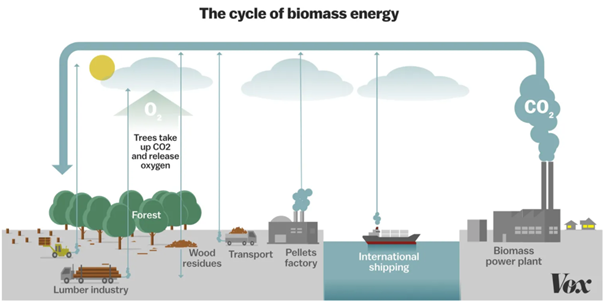@Vox
Advantages of biomass energy production: Biomass is a renewable energy source, because the planting and growth of new plants and trees replenishes the supply, and burning biomass to generate energy is also carbon neutral. Also:
The burning of wood waste to produce electricity considered carbon neutral: When wood is burned to produce energy, the carbon dioxide (CO2) that is released into the atmosphere is the same CO2 that would be released if the wood decomposed, so there is no net addition of carbon dioxide to the atmosphere. Also, forests are replanted and the new trees continue the cycle of absorbing and storing CO2 from the atmosphere. In the United States, forestlands are net carbon sinks, meaning more wood is grown than is removed.
Source from: https://www.wfpa.org/sustainable-forestry/biomass/ |





